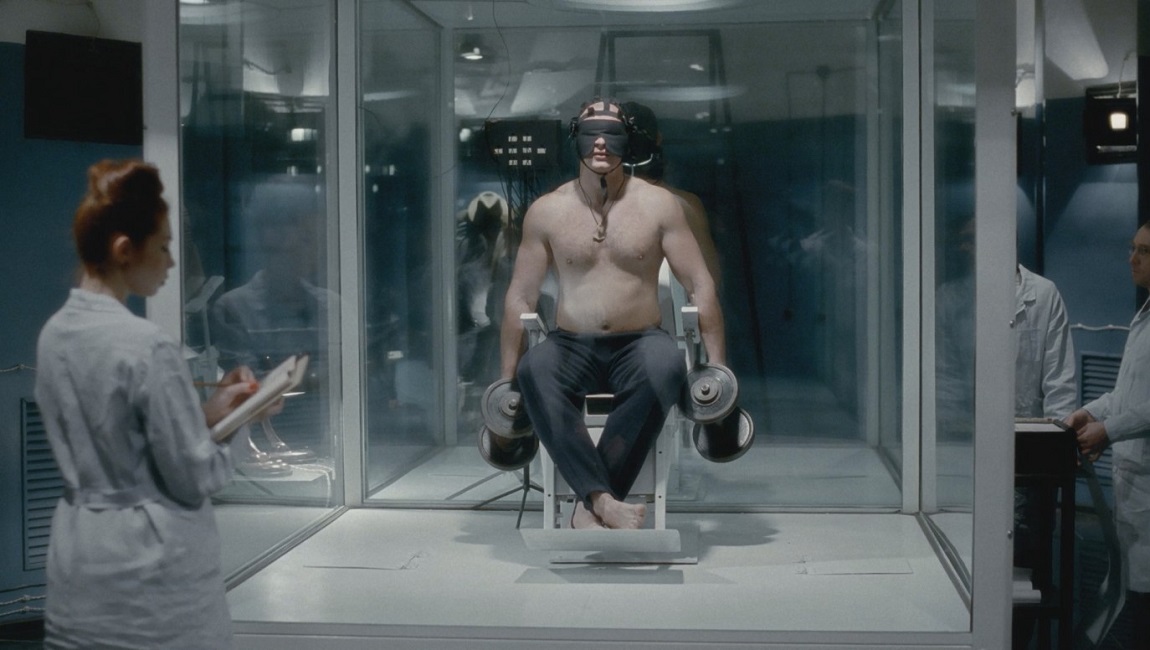Alain Resnais’s ingenuity as a filmmaker is on full display in his adaptation of one of the British theater’s most complex and rewarding works, Intimate Exchanges. A theatrical octet written between 1982 and 1983 by prolific playwright Alan Ayckbourn, the work is comprised of 31 scenes with over 16 hours of dialogue; it involves 10 characters who are all played by one of two actors, and is divided into eight stories, all of which spin off from the same opening scene. Each of the stories culminates in a moment with potential for variation, an opportunity for the pair to take each individual story in divergent directions, allowing for a possibility of 16 different endings. The play depicts how the tiny and often careless choices of an individual can lead to fateful or unforeseen consequences. One would think that such an innovative piece of drama would not make the journey into film very successfully. But they would be wrong. In 1993, Alain Resnais adapted Ayckbourn’s venerated work into Smoking/No Smoking, a five-hour diptych which gathers the most power when viewed in its entirety. Resnais repeatedly returns to the pivotal incident, with each new insertion providing for an increasingly revealing level of juxtaposition. That incident: the character of Celia Teasdale (Sabine Azéma) decides whether or not to resist the temptation of smoking a cigarette — an insignificant decision that ultimately determines whether “several people might get divorced, married, start affairs, have children or die.”
The work’s transcendent quality lies as much in one’s introspective real-time experience of this five-hour diptych as it does its call to learn from the potentialities suggested, and to carry their influence on into our own lives.
Ayckbourn’s Intimate Exchanges had a revival in 2006 and 2007 in Yorkshire, England, eventually making its way to a highly-acclaimed run in New York the following year. Outside of this brief, two-year stint, though, Resnais’s Smoking/No Smoking has served as the central point of reference for those undaunted by the five-hour runtime. While the play encompasses eight separate stories, the vitality of Resnais’s abridged version manages to properly convey the original architecture of the play in six. By removing two of the eight stories from this collection of stories — resulting in a work which retains twelve out of the sixteen possible endings — screenwriters Agnès Jaoui and Jean-Pierre Bacri’s remodeling of Ayckbourn’s work provides a regenerative canvas for Resnais’s exuberant vigor. This serendipitous collaboration between Resnais and his writers encapsulates and preserves the visionary truth of Resnais’s feature film oeuvre, from Hiroshima, Mon Amour on.
Both Smoking and No Smoking function as separate films, but carry a parallel relationship despite their purportedly perpendicular narratives. Lead actress Azéma (who was married to Resnais until the director’s death in 2014) evinces a commanding demeanor, inhabiting a range of characters alongside her co-star Pierre Arditi. Primarily recognized for his collaborations with Resnais, Arditi has accumulated over 200 credits, including works with Rossellini, Duras, and Jacquot. The filmmaker utilizes the versatile performances of the film’s actors to truly induce and to realize the dichotomous nature of the work’s characters. The broad spectrum of Arditi’s presence transmits a kinetic rejoinder, alongside the ranges of Azéma’s representations. The parallelisms of Resnais’s interactive structure, across the entirety of Smoking/No Smoking, coherently communicates the consequences of seemingly random choices. The work’s transcendent quality lies as much in one’s introspective real-time experience of this five-hour diptych as it does its call to learn from the potentialities suggested, and to carry their influence on into our own lives.
Part of Kicking the Canon – The Film Canon.







